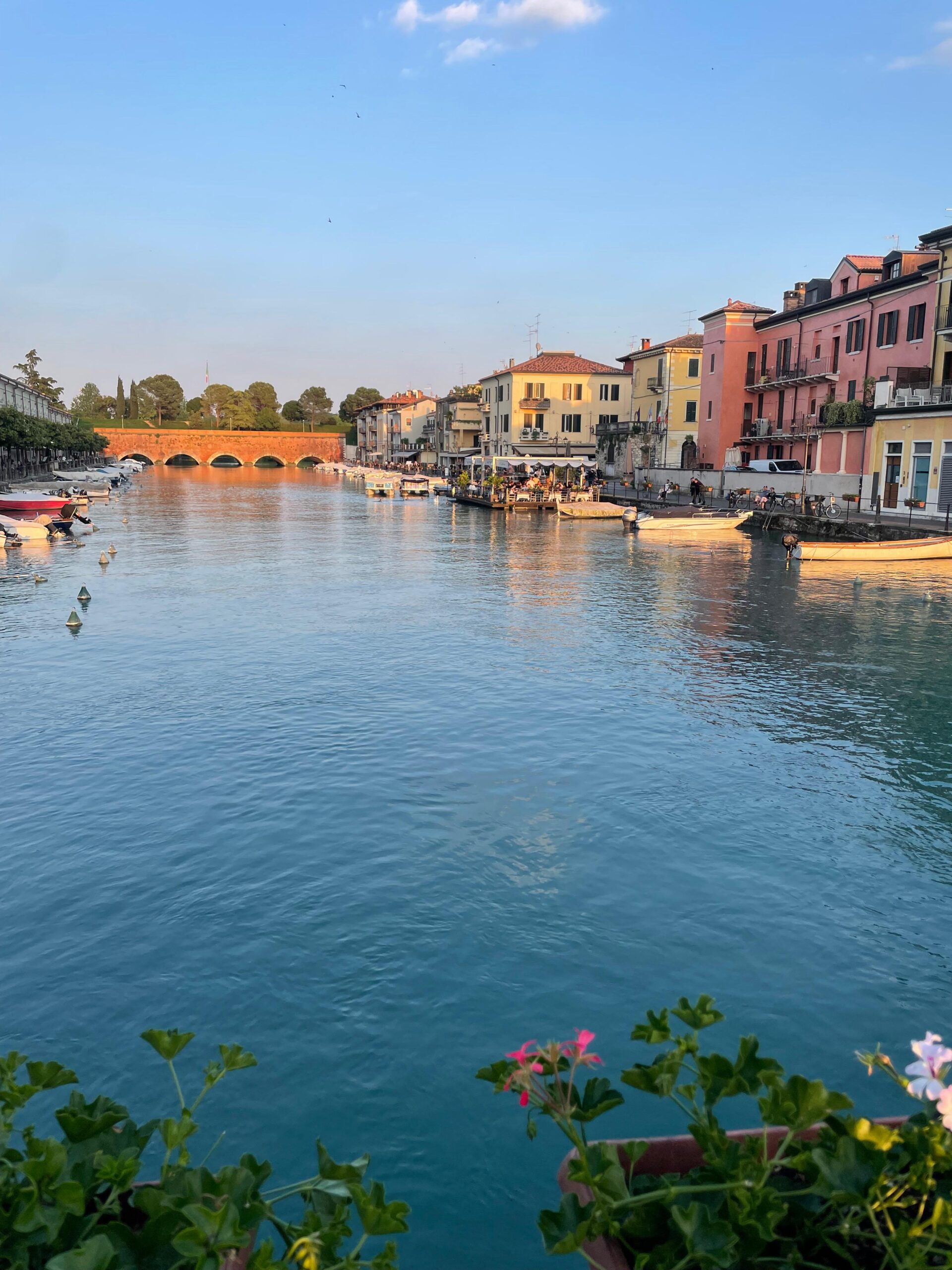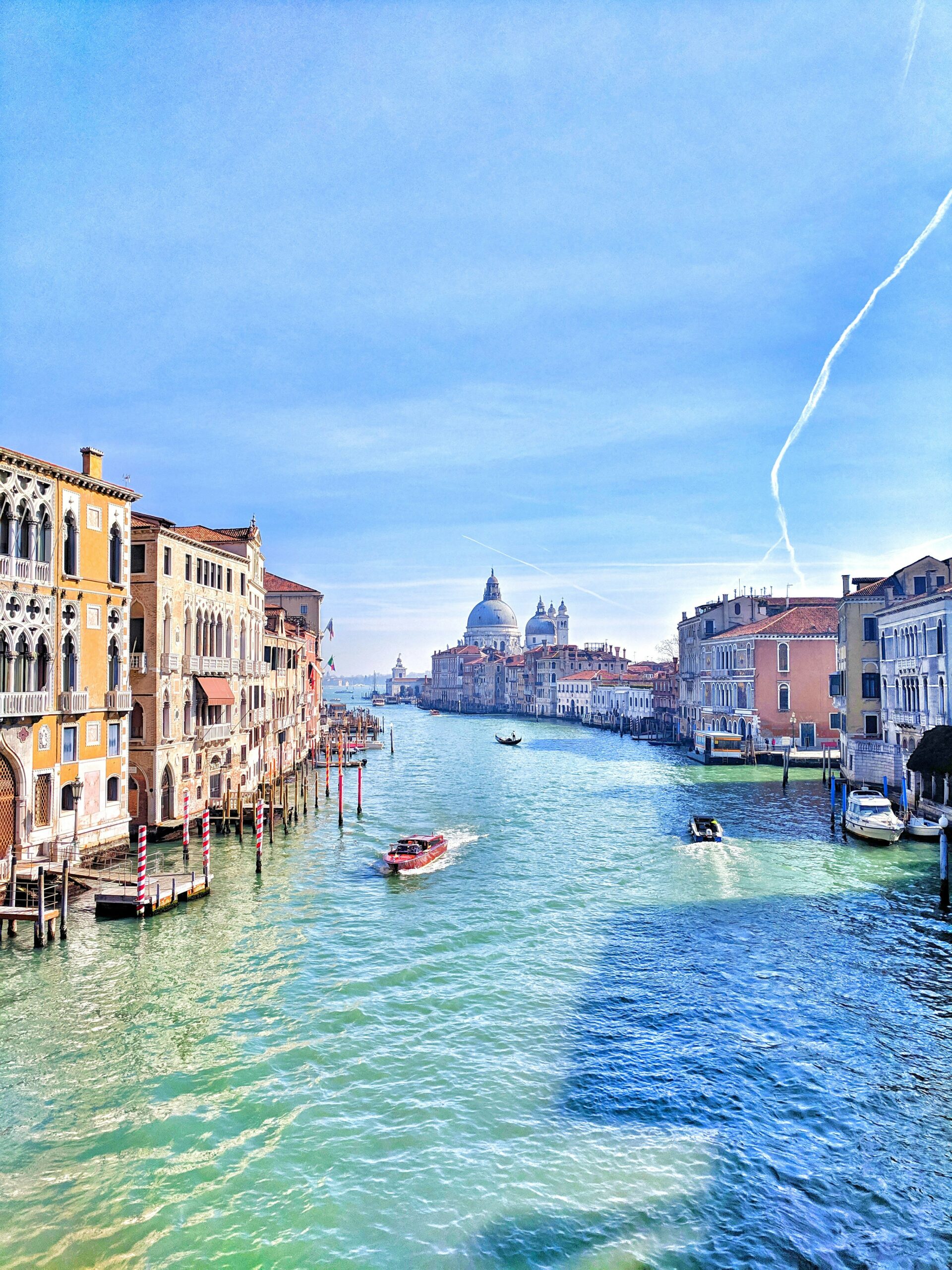Italy is an emerging country when it comes to digital nomads spending time there. Now, you can even stay long term in the country with the Italy digital nomad visa.
Highlights of Italy Digital Nomad Visa
- Visa for non-EU/EEA citizens
- Available for high-skilled professionals: you’ll have to have certain experience
- Minimum income requirement: €2.700 per month and savings of €30.000
- Miscellaneous requirements: you’ll have meet other requirements like having a valid health insurance and housing in Italy
- Validity: the Italy digital nomad visa is valid for one year and you can renew it if you still meet the criteria
- Tax consequences: you’ll likely end up paying taxes in Italy

Eligibility Criteria for the Italian Digital Nomad Visa
If you want to apply for the Italy digital nomad visa, you’ll have to meet certain requirements. In this section, we’ll list the different requirements and give you a bit more details.
Non-EU/EEA Citizen
Citizens of a country of the European Union or the European Economic Area have the freedom to settle in Italy without the need to apply for a visa. Therefore, the Italy digital nomad visa is only open to citizens of third countries.
Work Remotely & Qualifying Profession
Obviously, you need to work remotely to apply for the digital nomad visa in Italy. However, you should have been working remotely for at least six months before handing in your application.
Both employees and self-employed individuals can qualify for the nomad visa.
Nevertheless, not anyone who works remote can apply for the visa. Italy also applies a qualitative criteria and only wants to attract highly skilled workers. Accordingly, you need to meet one of the following criteria:
- University degree (with a minimal duration of three years)
- Post-secondary professional qualification of at least three years
- Minimum of 5 years of professional experience in the sector you currently work in
- Minimum of 3 years of experience (during the last 7 years) for managers and people working in IT
If you work remotely as an employee, your employer also needs to sign a document confirming that the company hasn’t been convicted in the European Union of any crimes related to immigration in the past five years. Hereby a link to a sample declaration from the Consulate in New York.
Minimum Income and Savings Requirement
In order to qualify for the Italy digital nomad visa you need to meet the minimum income requirement. This means you need to have a minimum monthly income of €2.700 or €32.400 per year (amounts indexed on a yearly basis).
This income needs to come from an active professional occupation. Passive income like rent or pensions are not taken into consideration to check if you meet the threshold.
On top of this, you also need to provide proof that you have at least €30.000 in savings.
If you want to include any dependent in your application, the minimum income remains the same but the saved amount goes up with €4.000 per person.
Valid Health Insurance
Apart from the criteria you need to meet, there are some requirements you need to cover in order to qualify for the Italian digital nomad visa.
The first one is that you need to have a health insurance that will cover you in Italy and the rest of the European Union for the duration of your stay.
The health insurance must have a coverage of at least EUR 30.000. In this way, Italy wants to ensure you don’t become a financial burden on their healthcare system.
Housing
Furthermore, you need to secure housing in Italy. This means you need to rent a place for the whole duration of your stay in Italy and this upfront.
The landlord needs to register the contract with the Italian tax authority and a stay at a hotel or alike or not accepted.
This is definitely a bit drawback for two reasons. First, it won’t be so easy to find and arrange suitable accommodation for your whole stay if you’re not in Italy yet. Second, this also means you’ll rent one place which limits your mobility within the country.
Luckily, some embassies seem to be a bit more flexible on this requirement.
Tax Considerations on the Digital Nomad Visa in Italy
The Italian digital nomad visa is valid for one year. That means you can spend a full year in Italy without needing to worry about your visa situation. However, something you might need to worry about are the tax considerations.
If you are going to live in Italy, you’ll have a good chance that the Italian tax authorities deem you a tax resident of Italy.
There are different ways they could argue you qualify as an Italian taxpayer. However, in any case there is a presumption that if you are registered as a resident with the local authorities for the majority of the tax year, they’ll ask you to pay Italian taxes.
There are some ways to mitigate your tax liability in Italy. This is definitely something to look into given that the income tax rates go up to 43% and you still need to pay social contributions on top of this.
A first way to mitigate your tax liability is by applying for the Lavoratori Impatriati regime. This is a regime for people who moved to Italy whereby you can get a tax reduction of 50% for five years.
Another way is to register for the flat tax scheme for freelancers, also called Regime Forfettario. Of course, this only applies for people with their own business and not for employees. Under this system you pay a flat tax calculated on your revenue. For the first five years the rate is 5%, after that it increases to 15%.
If you want to read more about what it means to have your tax residency in Italy and how to optimize your tax setup, you can read my dedicated article.
How to Apply for the Nomad Visa Program
Hereby an overview of the different steps in order to apply for the Italian digital nomad visa.

Check Eligibility Criteria
Before diving into your application, you should first make sure you meet all the eligibility criteria for the Italy digital nomad visa. If this isn’t the case, you will just waste your time as your application will be denied in any case.
Gather Documentation
Once you know you do meet the necessary requirements, you can start gathering the documents that proof this. Hereby a list of the documents you’ll need:
- Valid passport: needs to be valid for at least three months after your intended stay
- Visa application form: fill out the visa application form from your local embassy or consulate
- Passport-sized pictures: you’ll need two passport-sized headshots
- Proof of residence: you’ll have to show your local embassy or consulate you live in the country where you’re applying for the visa
- Proof of work experience: proof that you’ve been working remotely for at least six months (cfr. supra)
- Declaration employer: if you work as an employee, your employer needs to sign the declaration regarding not having any criminal convictions (cfr. supra)
- Proof of income and savings: gather bank statements and/or paychecks that show you meet in the income and savings requirement (cfr. supra)
- Health insurance: contract and policy confirming your health insurance for your stay in Italy (cfr. supra)
- Housing: rental agreement confirming where you’ll have a place to stay while in Italy (cfr. supra)
In-person Appointment
Next, you’ll have to make an in-person appointment at the local embassy or consulate to file your application. As such, you can only file the application from the country where you are a legal resident.
Here, you’ll also have to pay the visa application fee.
Pickup Your Visa
You’ll be notified by the embassy once a decision is made on your application. This will normally take 30 to 90 days.
If your application was successful, you can pick your visa up from the local embassy. This visa will grant you access to Italy where you’ll take the last step of the process.
Get Your Residency Permit
Upon your arrival in Italy, you need to apply for the Permesso di Soggiorno or residency permit within eight working days of your arrival. You’ll have to apply at the local Questura (police office) which is responsible for the jurisdiction where you will be living.
Now, you’ll get a residency permit just like anyone else living in Italy.
The residence permit will be valid for one year. After the one year you can apply to renew it on the condition you still meet all the requirements.
How’s the Digital Nomad Scene in Italy?
Italy has been long a very popular hotspot for tourists. However, recently the country also became an emerging destination for digital nomads for various reasons.
- Cost of living: compared to its Western European counterparties, the cost of living in Italy is still rather affordable. Of course, there are differences between different places. I guess in general you can say that the cost of living in the south is less than in the north of Italy.
- Food: is there anyone on this planet that doesn’t love Italian food? By going to Italy, you can taste it the authentic way.
- Rich culture and history: apart from food, Italy of course has a rich culture and is home to many historic landmarks.
- Growing startup scene: many Italian cities (e.g. Milan and Rome) have an emerging startup scene.
By adding the Italy digital nomad visa to the mix, we see Italy as a good destination for digital nomads.
Work With Me
As I already mentioned before, you want to assess the consequences of applying for the Italy digital nomad visa.
If you want to assess your case more in detail or need other assistance, you can always reach out!
